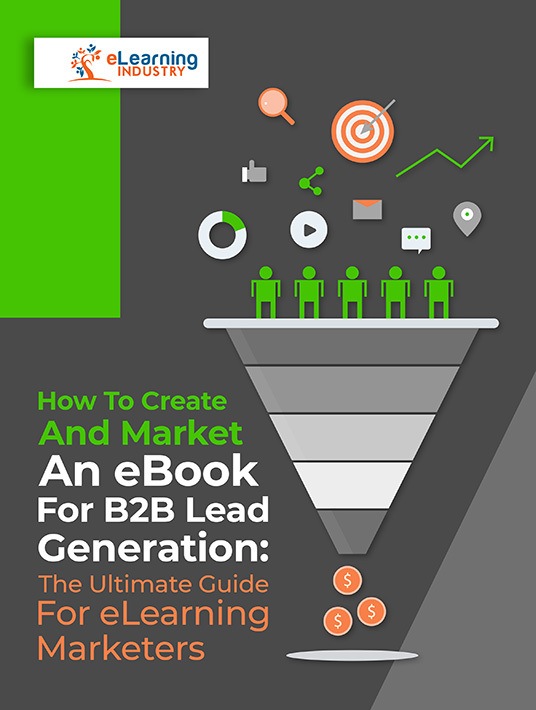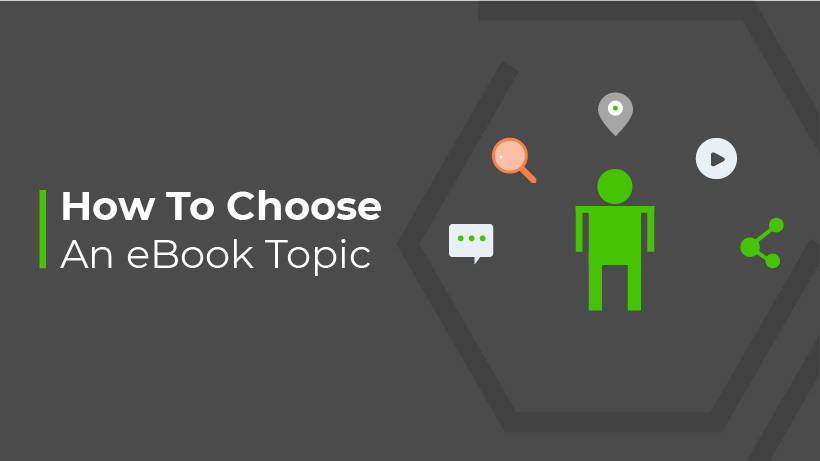4 Steps On How To Choose An eBook Topic For Your Audience
Most of us come up with ideas while we’re making our coffee, eating breakfast, or driving to work. However, it's almost impossible to come up with ideas for groundbreaking, strategic, and engaging eBook topics spur of the moment. In order to turn inspiration into plans, you have to find evidence to support ideas and turn them into a trustworthy source of information [1]
Research is one of the most important steps in creating your eBook. It not only informs your point but also helps you choose a topic that actually matters to your audience. Essentially, it's a strong foundation for everything to come.
Your eBook can be about anything. As long as it delivers the critical information your audience members need, in a way that captures their attention. But it has to be about one specific, relevant topic in order to be useful, which begs the question. How do you choose that?

Common Mistakes To Avoid
The freedom to write about anything can feel heavy. How do you start? Or how do you consistently discuss the topic from one chapter to the next? Do Do you do all of this in a relevant and engaging way and how?
1. Topics
One of the most common mistakes people make when crafting an eBook is failing to choose and discuss just one single topic. Some might choose a topic that's overly ambitious and doesn't easily break down into chapters of an eBook. Some others start without an idea and hope it will just come to them. The result is a jumble of ideas that don’t provide readers with any of the answers they’re searching for. That's because there isn't a defined topic from the start.
2. Audience
The same can be true if you don’t precisely identify and understand your audience. You won’t know which topic is most relevant or how your brand could be most valuable in the context of that topic if you don’t keep in mind who you’re writing the eBook for. If your audience doesn’t find the topic useful, they won’t see the need to download your eBook or the benefit of providing you with their email addresses, which is one of the ultimate goals of creating the content in the first place [2].
These types of mistakes can turn what should be a valuable, versatile content resource into a sunken cost for your company. Because creating a content marketing funnel is a long-term game, you might not see the failure at first, but every piece of content you make should build authority and credibility with your audience. If your content isn’t coherent, relevant, and valuable to readers, it could do more harm than good for your brand in the end.
To avoid these mistakes and choose the best eBook topic for you and your audience, there are a couple of key steps to keep in mind.
1. Identify A Persona And How You Can Help
With longer premium content like an eBook, you might think the best way to expand its reach is to make it relate to as many people as possible. If successful, your content will eventually reach far and wide, but when creating your eBook, it’s important to start by choosing a targeted buyer persona to speak to and then let it reach people outside that persona over time [3].
Carefully think through the responsibilities, challenges, and obstacles your persona might face. How can the information you want to present lessen those concerns and help them overcome those challenges? Keep the focus of your eBook on these things instead of on your brand. Also, present it in a way that shows understanding and is relevant to them.
2. Find Where The Persona Is In Their Journey
Relevance is vital, but timing is everything. Once you’ve mapped out as many details as possible about your selected persona, consider at what points in their journey they’ll receive the information [4]. The topic might be familiar to them, but the content itself has to resonate emotionally. That requires understanding where the reader is in their journey.
For example, if your persona is only recently aware of a problem. Thus, your content should provide more information about that concern. If they’re already researching solutions, the content should present ways to solve and address their specific pain points. Once a reader is ready to make a purchase decision, content that outlines your impact on their solution will prove most useful. Timing is a powerful tool to show an understanding of your audience.
3. Learn What Your Persona Is Searching For
Knowing your audience’s concerns and where they are in their journey will give you a good start on learning exactly what they want to hear. SEO keywords are essential to know and utilize. However, refrain from going after just the highest-value short-tail words and stuffing them into your eBook. This will impact the relevance of your eBook. It will also reduce its ability to compete well on search engines.
Instead, identify what your audience searches for most often and the top 10 to 15 keywords [5]. Create as many variations of these as makes sense for the topic. Keep in mind why they’re searching (e.g., researching, considering, or buying). You can also use Google Search Console to discover what keywords and queries users wrote before landing on your website. The more you can tie their searches to your eBook, the higher it will rank.
4. See Your Persona Through The Eyes Of Your Sales Team
No matter how much research you do, you won’t be able to match your sales team’s experience when it comes to interacting with and understanding your customers. Bring them in early on to get their insights on things like what questions customers most commonly have or what concerns they bring up most frequently [6].
If possible, have your sales team create part of the eBook content. The goal is to speak to consumers, so why not have your frontline employees speak for you? If they don’t have the time or writing skills to create the content directly, have them select the most relevant topic and give your marketing team or writers as much information as possible.
Following these steps will put you on a path to success. With all of your background information, SEO research, and sales team input, you’re ready to choose a topic for your eBook. Inspiration strikes and you come up with ideas during your drives or while having a cup of coffee. But now you also have all the tools you'll need to make those ideas phenomenal.
The more informed you are, the more valuable your idea will be to your audience. Dive into your research voraciously, absorb all information regarding your persona, and, most importantly, test any idea you come up with against the persona that your research identified. Once you publish your eBook, taking all of these steps will set you up to be top of mind when people seek information on the topic.
eLearning marketers may sometimes feel overwhelmed when they’re in the process of finding the best ways to create and market an eBook for B2B lead generation. Download our free eBook How To Create And Market An eBook For B2B Lead Generation: The Ultimate Guide For eLearning Marketers to discover how to create and market a B2B lead generation eBook that addresses the topic with the authority of an eLearning marketing expert but in a friendly tone.
Are you interested in more marketing news and updates? Join our email list and stay informed!
References:
[1] How To Create An eBook From Start To Finish [Free Ebook Templates]
[2] So Your eBook Didn't Generate Leads? You Could Be Making These Rookie Mistakes
[3] Quick And Dirty Guide For Creating Actionable Content Marketing Personas
[4] Why You Need A Persona-Based Content Marketing Strategy
[5] How To Create An SEO Strategy For 2019 [Template Included]
[6] 4 Ways Your Sales Team Can Help Your Content Marketing Efforts

